Pattern recognition Math Worksheets for Ages 5-9
23 filtered results
-
From - To
Unlock the exciting world of math for your child with our Pattern Recognition Math Worksheets, tailored for ages 5-9! These fun and engaging worksheets are designed to enhance critical thinking, sequencing, and problem-solving skills. From simple shape sequences for beginners to more complex number patterns for advanced learners, our worksheets cater to every developmental stage. Perfect for both classroom and at-home learning, they ensure kids master patterns while enjoying the process. Start building a solid mathematical foundation today with activities that bring out the joy of learning through playful exploration and discovery!
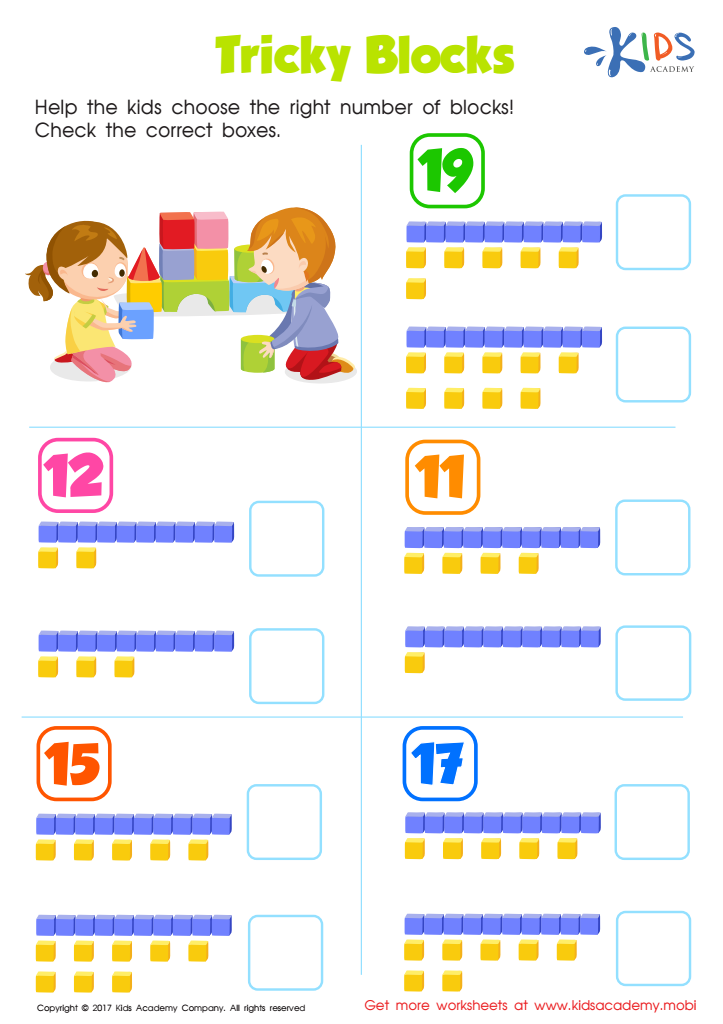

Tricky Blocks Worksheet
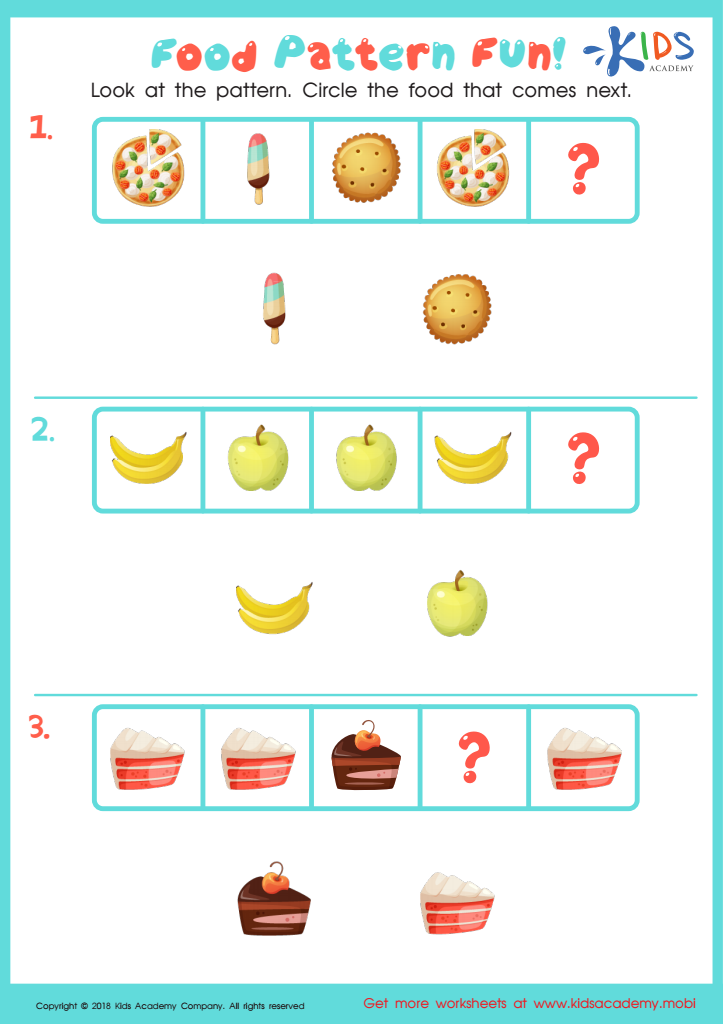

Food Pattern Fun Worksheet
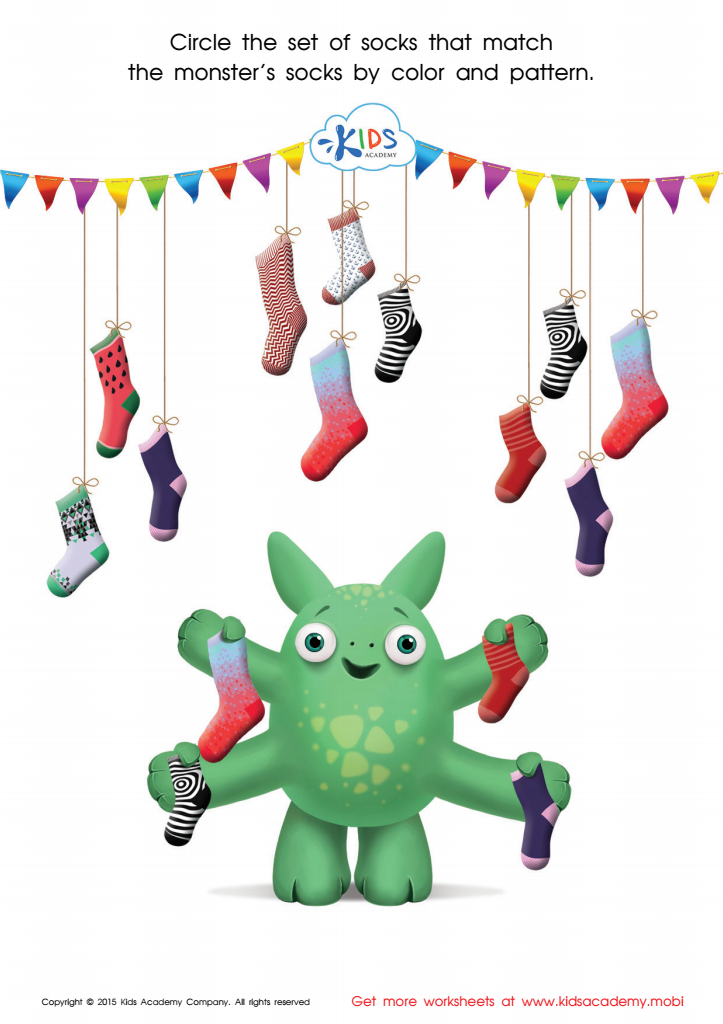

Sort the Monster's Socks Worksheet
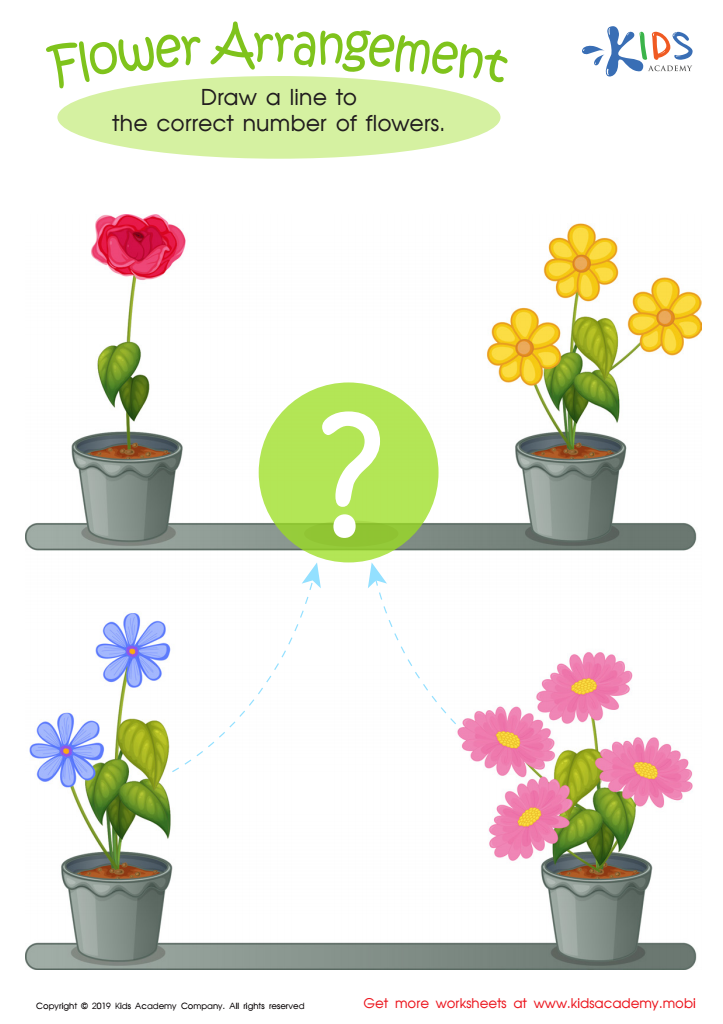

Flower Arrangement Worksheet
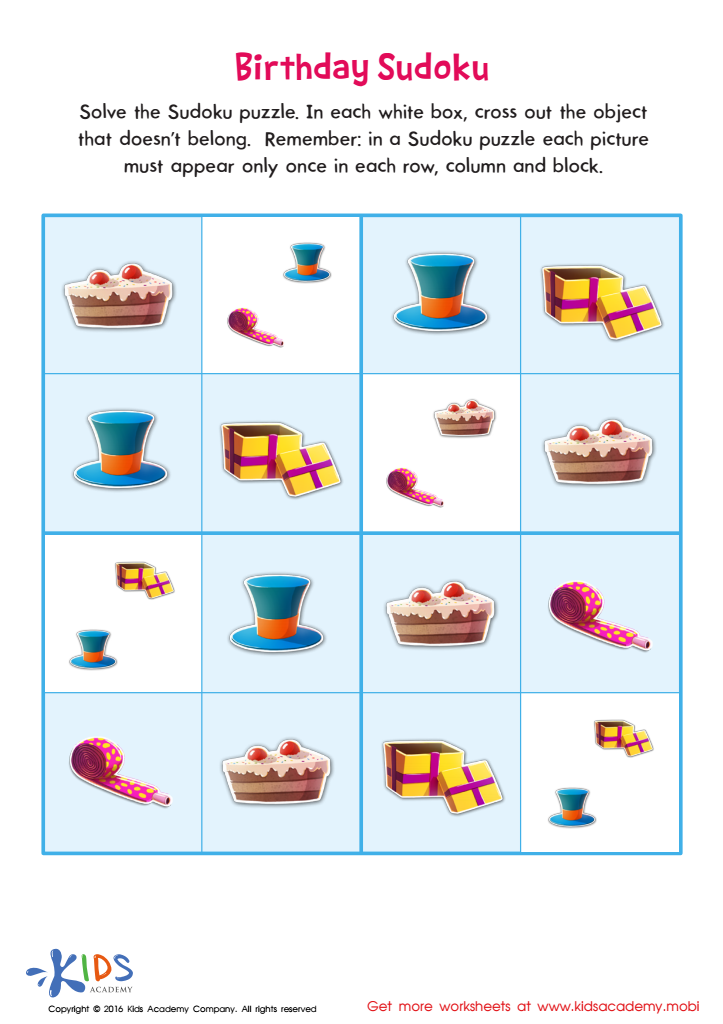

Birthday Sudoku Sorting Worksheet
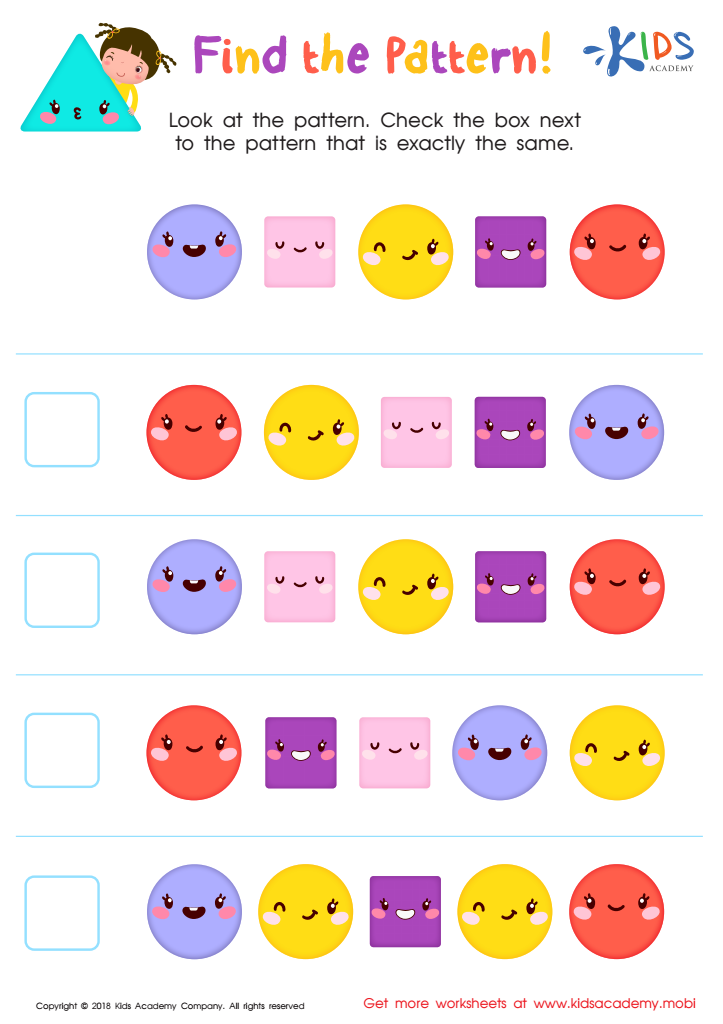

Find the Pattern Worksheet
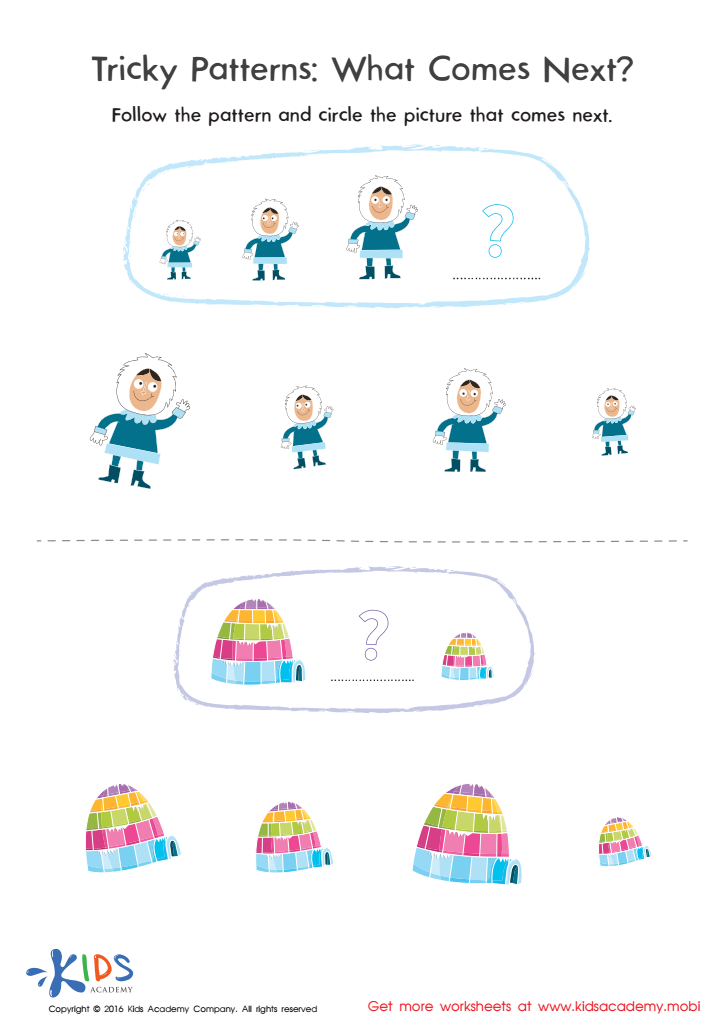

Tricky Patterns Size Worksheet


Make the Same Pattern Worksheet
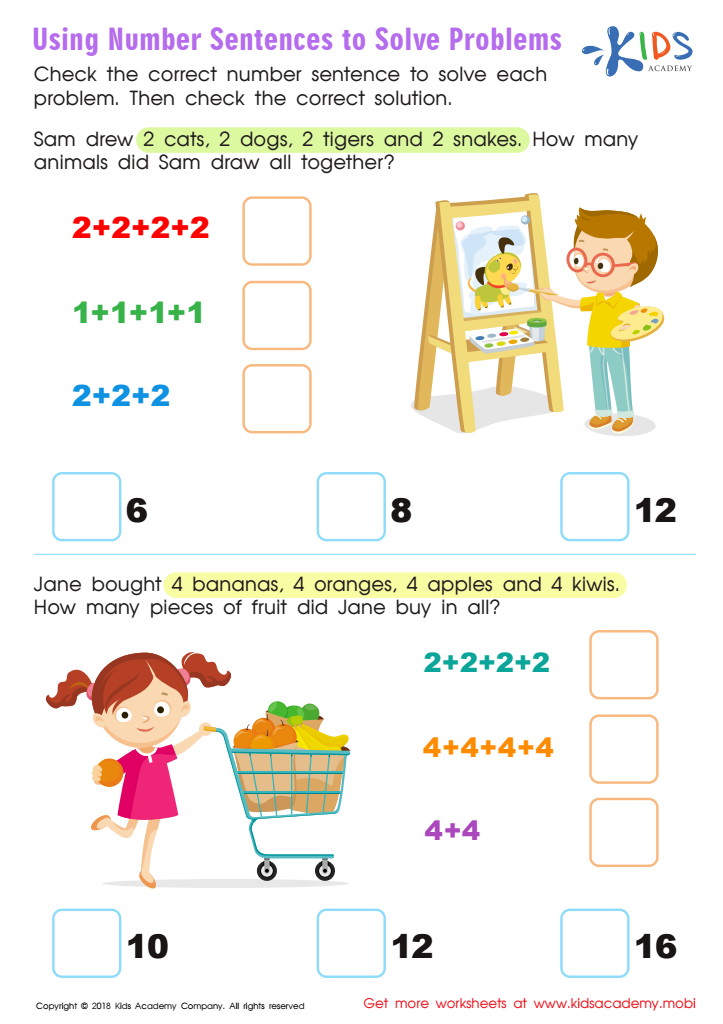

Using Number Sentences to Solve Problems Worksheet
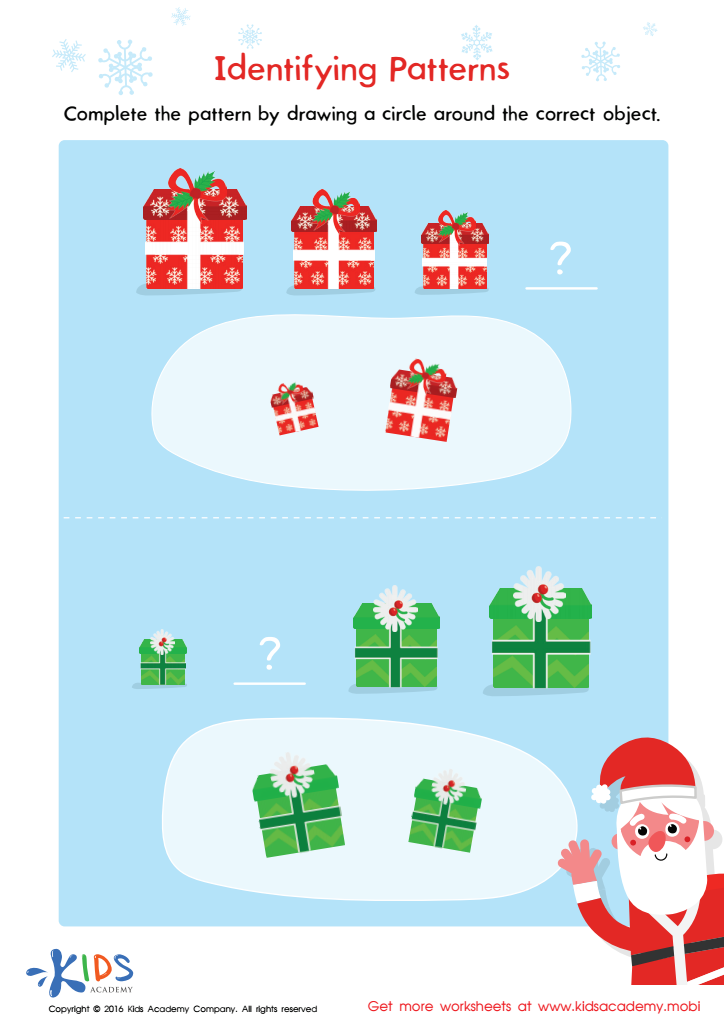

Identifying Patterns Worksheet
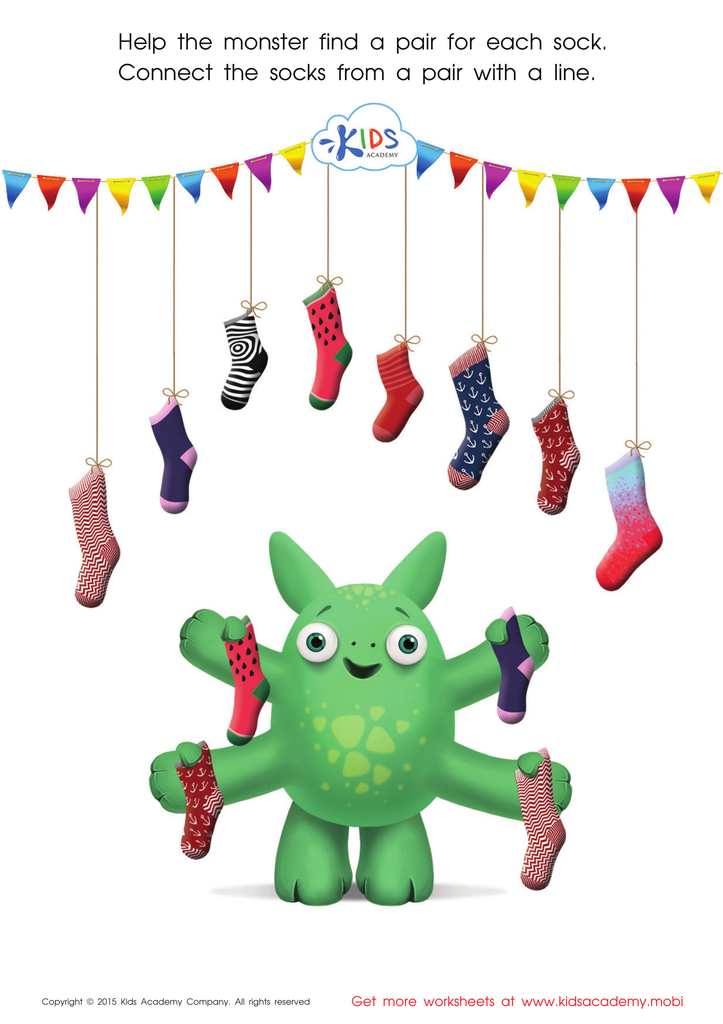

Math Matching Game: Monsterв's Socks Worksheet
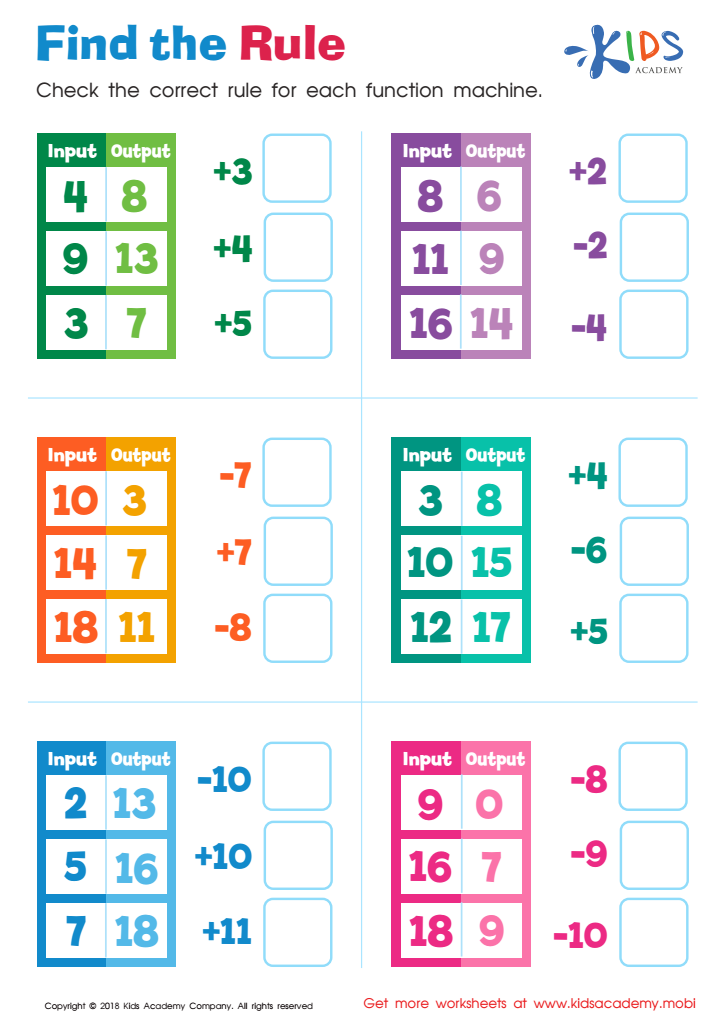

Find the Rule Worksheet


Logic Game Sorting Worksheet
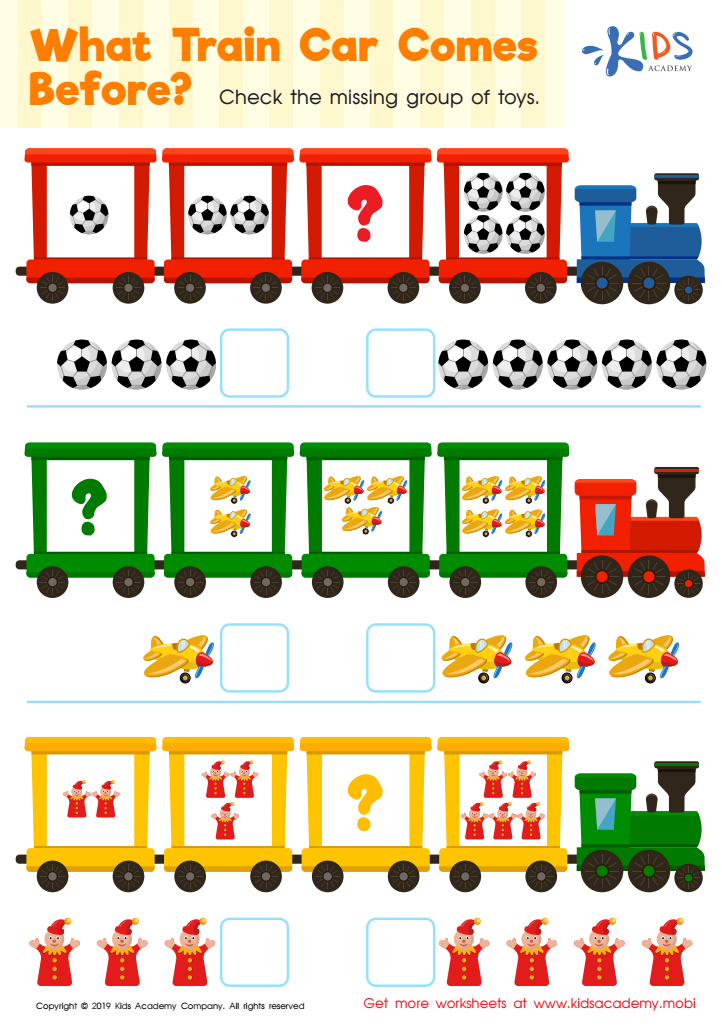

What Train Car Comes Before? Worksheet
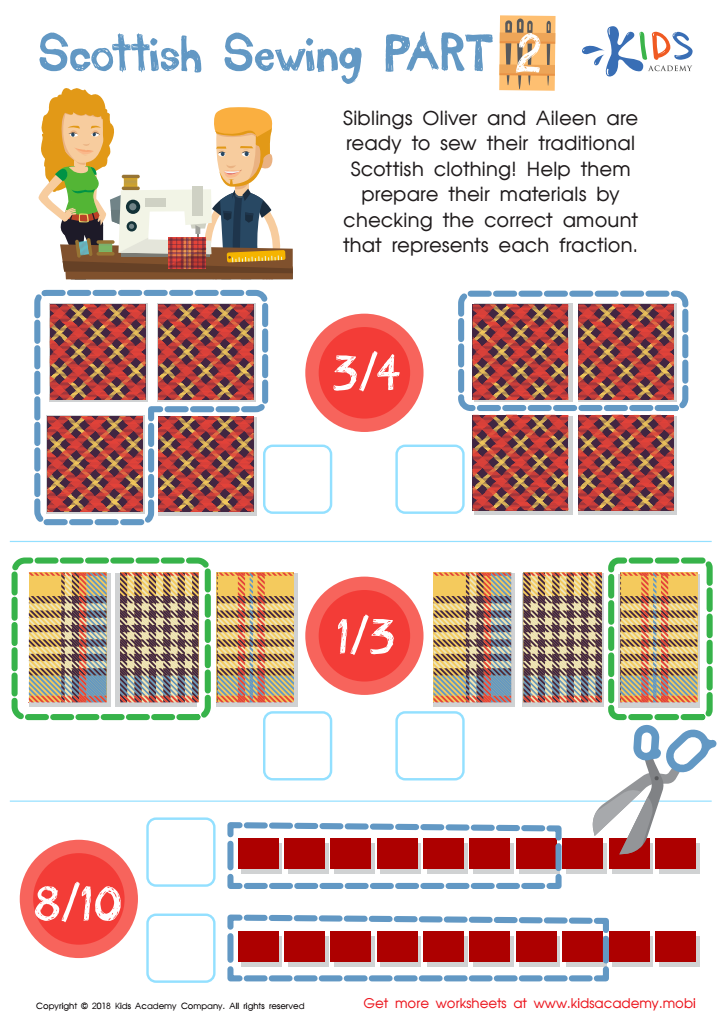

Scottish Sewing Part 2 Worksheet
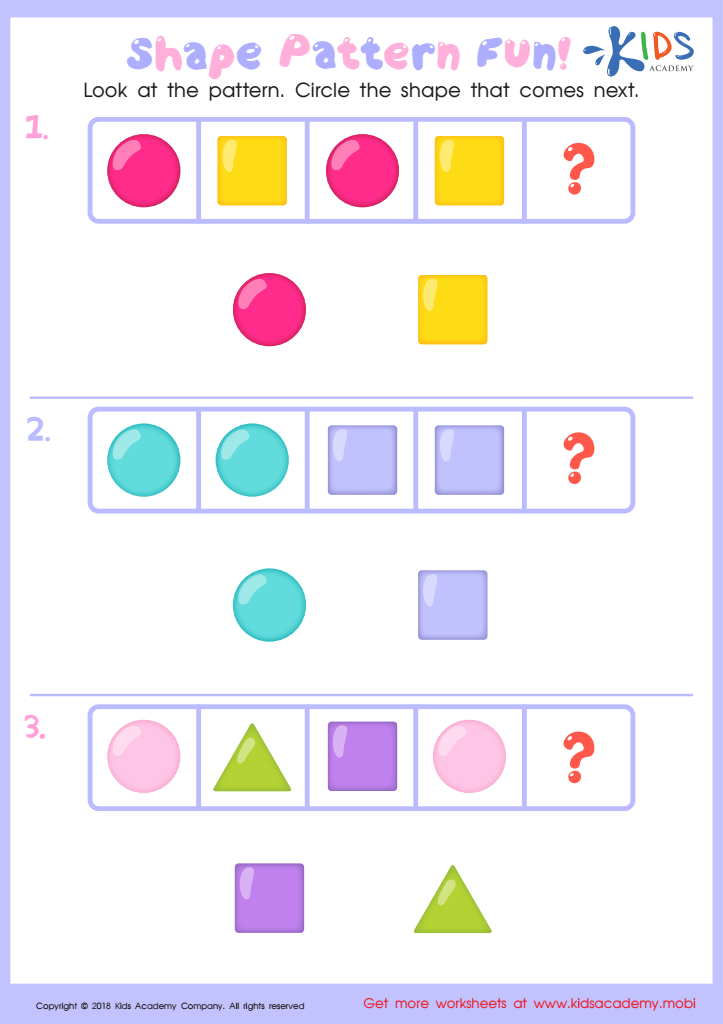

Shape Pattern Fun Worksheet
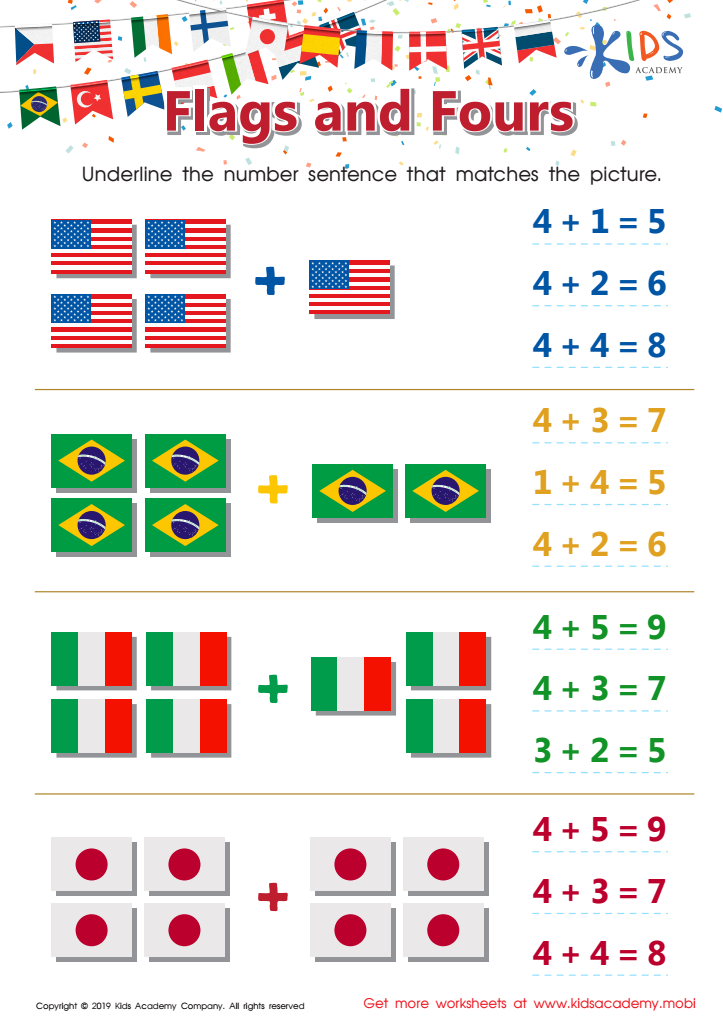

Flags and Fours Worksheet
Pattern recognition is a foundational skill that underpins many aspects of mathematics and general cognitive development, making it critically important for children aged 5-9. For one, recognizing patterns helps young learners make sense of the world around them. Patterns are the building blocks for understanding complex concepts later in life, not just in math but also in science, language arts, and even social studies.
When children identify and predict patterns, they enhance their problem-solving skills and logical thinking. It’s the first step toward understanding more intricate mathematical concepts such as addition, subtraction, multiplication, and division. For example, recognizing a pattern in numbers can help a child quickly solve arithmetic problems by seeing connections rather than relying solely on rote memorization.
Beyond academics, pattern recognition nurtures spatial awareness and fine motor skills. Activities involving patterns often require sorting, sequencing, and classifying objects—skills crucial for organizing thoughts and tasks efficiently. Additionally, the sense of achievement acquired from identifying and creating patterns can boost a child's confidence, promoting a positive attitude toward learning in general.
Thus, parents and teachers should prioritize pattern recognition to build a solid foundation for a child’s educational journey. Engaging kids in activities that highlight these skills will provide them with tools that will benefit their future learning experiences and daily problem-solving tasks.
 Assign to My Students
Assign to My Students


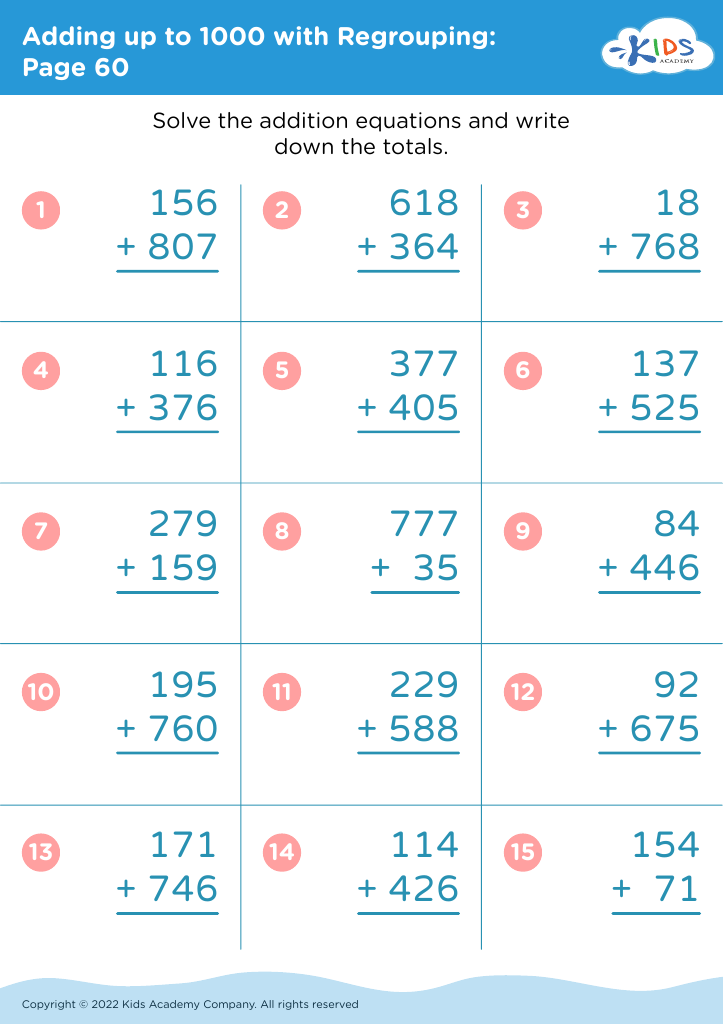

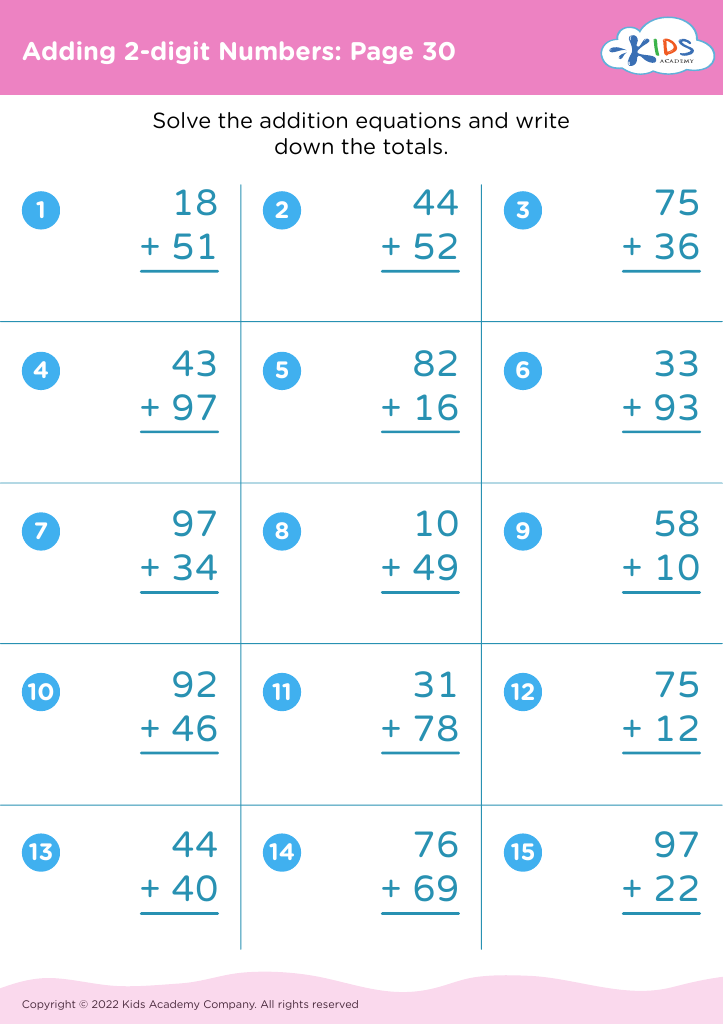
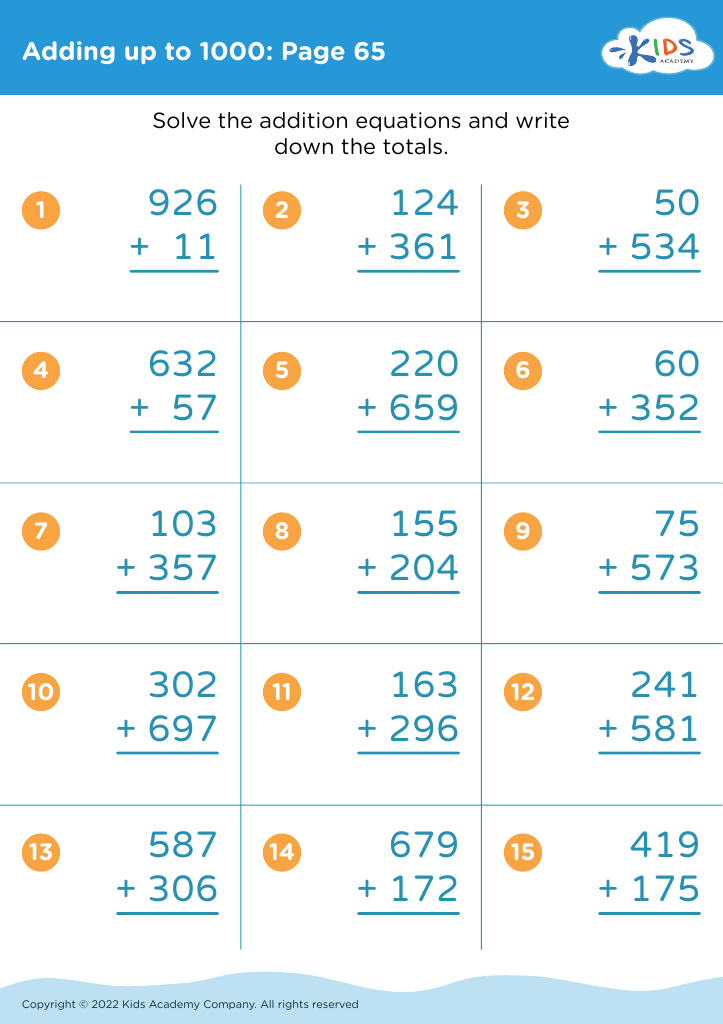
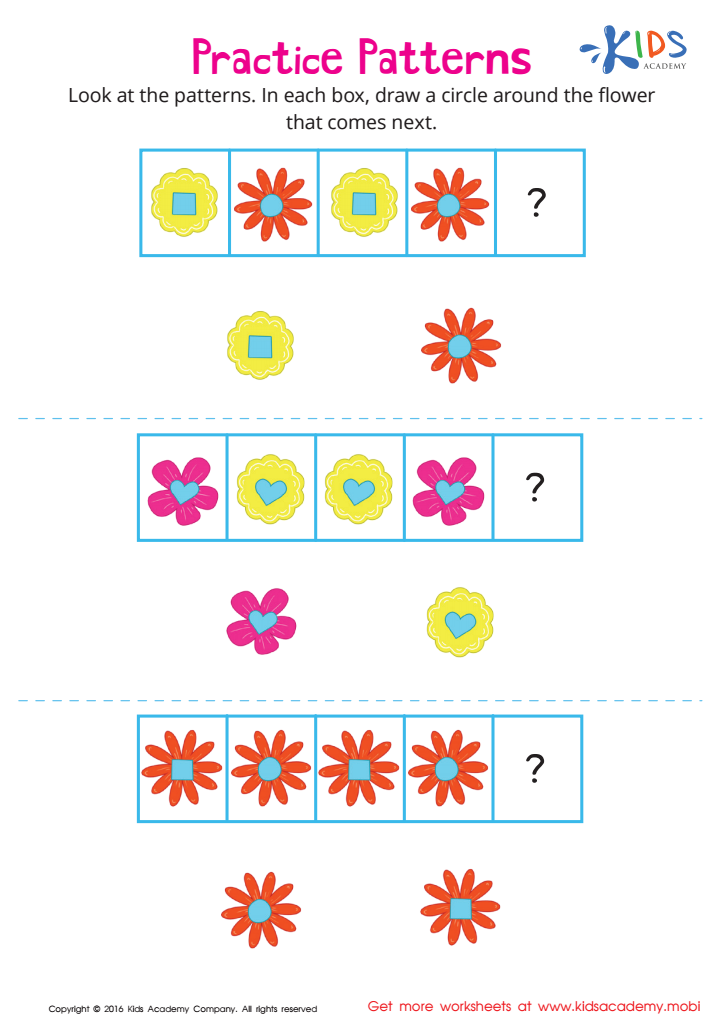






.jpg)














